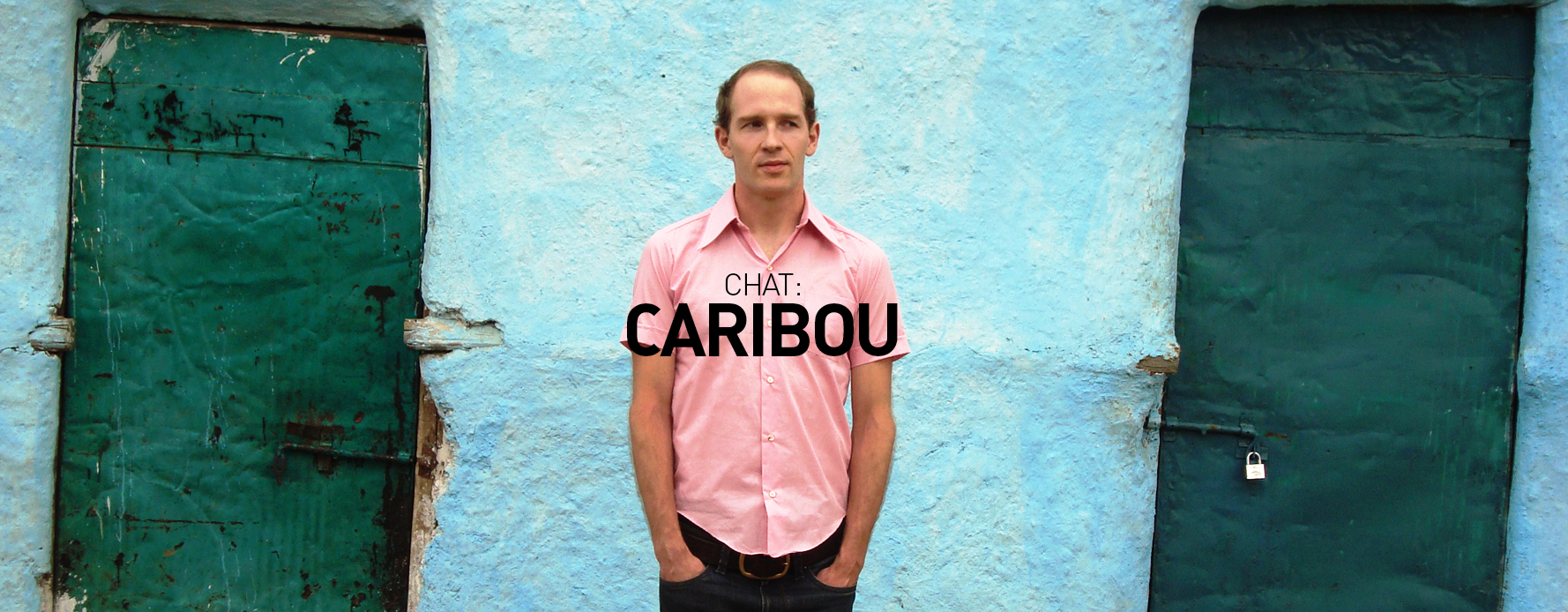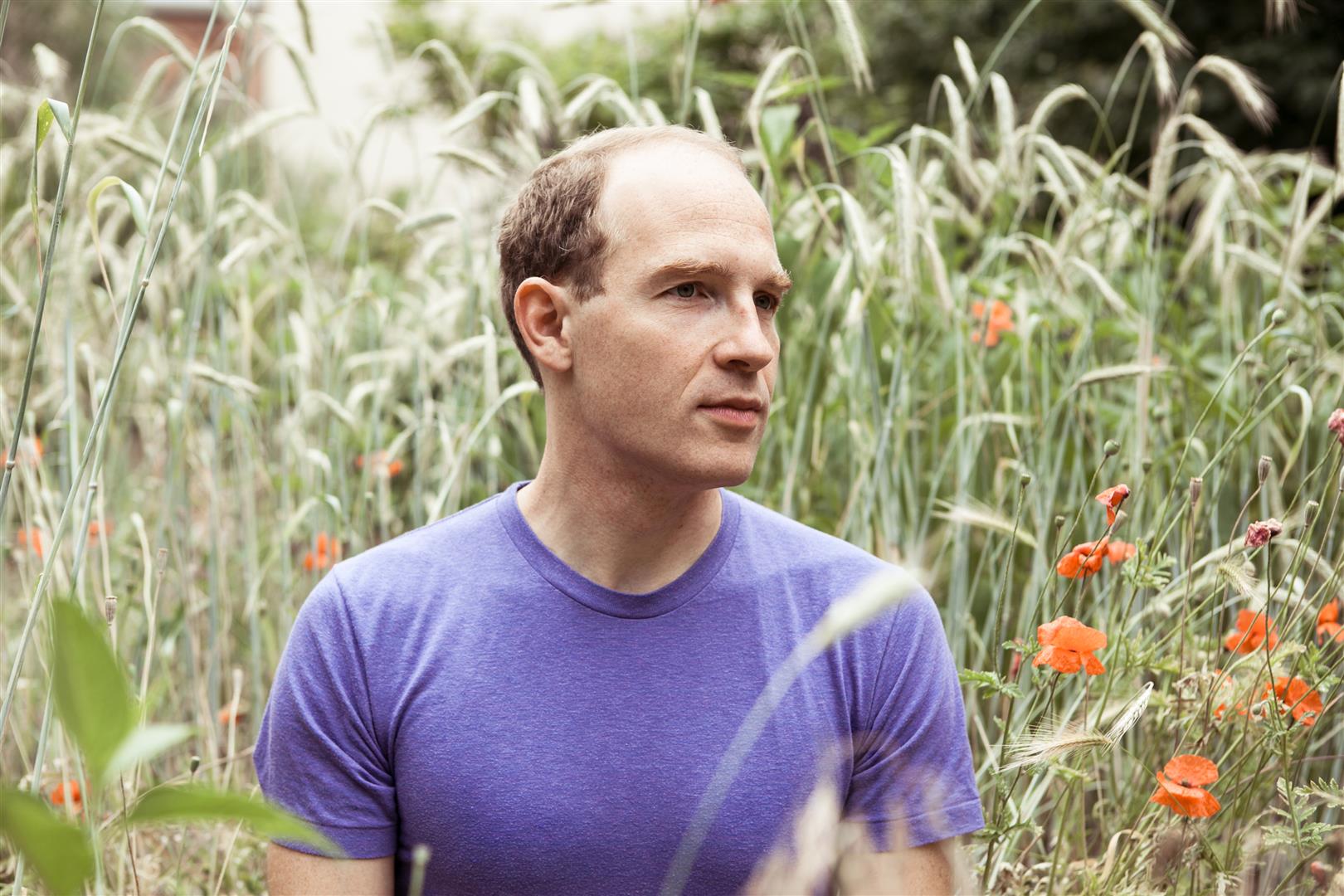Caribou: Singing Shyness
 Thirsty for JUICE content? Quench your cravings on our Instagram, TikTok and WhatsApp
Thirsty for JUICE content? Quench your cravings on our Instagram, TikTok and WhatsApp

Interview JUICE Indonesia
It’s arguable that Dan Snaith’s third album as Caribou, Swim, was the turning point in his career that set his music on a path made more for the dancefloors than the hard cement of live gigs (unless the man himself is playing his own songs, that is). Having played for more DJ shows during the initial makings of the record, the house and techno tracks he had made a staple in his sets at the time seeped into his musical psyche, inadvertently shaping Snaith as a musician whose current output has become part and parcel of the ‘10s DJ sets. ‘Can’t Do Without You’ off follow-up album Our Love – an album made with the success of Swim still in mind – might just be a zeitgeist-defining dance track of this decade – it is after all the entry level song for DJs attempting to prove their worth as a connoisseur of good dance music. Acquiescing to the demands of listeners worked splendidly for him, but as our conversation at The Gathering, Singapore revealed – Snaith never let that fact get in the way of emotional honesty.
The reception for Our Love was phenomenal. Could you tell us a bit about the story behind that record?
For me, the reason I made the record was that the previous record, Swim, had exploded or connected with more people than the ones I’d made before, and I felt this really warm support from the people who liked it. So, I usually just make music for myself, and this was the first time I wanted to make a record for everybody that was gonna hear it. And since it came out—it’s been out for months now – it’s been amazing! I mean, like, playing ‘Can’t Do Without You’ in big festivals and having that kinda moment where everybody’s in the same kinda mindset or whatever; it’s fantastic!
The album is as its title says – it’s thematically about love, but speaking of ‘Can’t Do Without You’, what’s that song in particular about anyway? We feel like it’s more nuanced…
The whole album is about love. I wanted the music to not only have as much nuance about love, but also about lots of different things. So that song is about a number of different things. For one thing, it’s about the simple relationship between the first time making music and the first time listening to it, and how it makes this kind of unifying feeling. It’s also about my daughter. But there’s also some kind of… funny, some people hear this and some people don’t, but that song is kinda stuck on a loop. So it’s also about how dysfunctional relationships can be. How you can be obsessive about one and another or just kinda glued together – co-dependent. It’s such a simple phrase but it can mean all sorts of different things.
Since we’re getting you to give us the official intent behind your songs anyway, we’ve always been curious about ‘Jacknuggeted’ off Up in Flames (2003)…
This is something that has changed over the time, but when I first wrote that song, that was the first song that I ever sung on. Ever! So, for me, at that point I was focused way more on how self-conscious I was about my voice, and I was just trying to find words that I didn’t feel embarrassed singing and the sound of my voice, which I’ve layered up lots and lots of time to get the sound that I didn’t feel embarrassed about. I wasn’t really able to think about the lyrics in a way that they connected to me. I kind of make up a little story or something out of the lyrics, but it didn’t really have anything to do with me. So they’re more abstract, and a lot of the music I like is like that—the lyrics are abstract.
The thing that we love so much about ‘Jacknuggeted’ is how the melody is very upbeat, but then when you listen to the words – it’s actually very sad!
(Laughs) It does sounds like a breakup song, doesn’t it? I also really like that in music. And to be honest with you, I hadn’t gone through a breakup when I wrote that song (laughs) although everybody had and it was something that they can relate to. But I also like music that has that… happy-sad feeling. Kinda celebratory but at the same time it’s melancholic. Music, I think, can do that uniquely well. With books, films, fine art, it’s harder to have those two things right on top of one and another. But music does that so well because you can have the lyrics be sad and the music be celebratory, or the other way around.
From the perspective of a listener, you’ve obviously gotten ‘dancier’. How do you see yourself evolving as a musician though?
In some ways I feel like it’s exactly the same. Like, when I sit down to make a piece of music, I still have that excitement and I still have that feeling that I don’t really know what I’m doing. I just have to try some things and see what happens. But in other times, I feel things have changed very much. Like, for example, the way my music now has much more of a personal element in it or that I feel confident about certain things—there are certain things I know I can do now. But I think the thing that keeps it interesting is that music is a puzzle that you’ll never figure out. Nobody can sit down and think, “Okay, I’m gonna write the perfect song today,” or make the perfect sound or whatever. There is always a search for something—the missing piece that you have to try to make it fit.
You said earlier that you were feeling self-conscious about singing. Are you more comfortable in your voice now?
I would be very uncomfortable just singing to you right now! You know, if I had to sing you a song or something (laughs). But it’s funny because if I were at a karaoke bar, I would not want to get up there. In public, I would feel very uncomfortable about that, but yet when I get on stage to sing to thousands of people sometimes, I would feel totally fine! Singing in a studio is really different because I have control whether anybody hears it or not, so I can just throw it in the garbage. So it starts there, and then when I’ve got a song that I know I like the sound of my voice on it, I will play it with the band and they can have their say. I mean, there are some songs in the set that John, who plays bass in the band and is an excellent singer, sings. Some of them because he should be singing, but some because I’ve tried singing and was like, “Yeah, let’s just have John sing in this one.” There are limits and I’m aware of the limits to what I can do.
You went through some legal trouble that ended up with you changing your stage name from Manitoba to Caribou. How did that affect you as an artiste?
It made me more determined to keep doing music because it seemed so stupid – the whole thing was unrelated to anything that has got to do with music. I was like, “This is not what I want to be spending my time for, or the immense amount of money as the cost to do it.” But it made me think that the musical side of my life is so valuable. It’s essential. I couldn’t imagine being without music all the time. So I thought, “Well, I’m not gonna let this stupid thing stop me.” So it doesn’t change the genre of music I was making, it just made me more focused.
Caribou played at The Gathering, Singapore on Saturday ’14 February ’15.

 Get Audio+
Get Audio+ Hot FM
Hot FM Kool 101
Kool 101 Eight FM
Eight FM Fly FM
Fly FM Molek FM
Molek FM